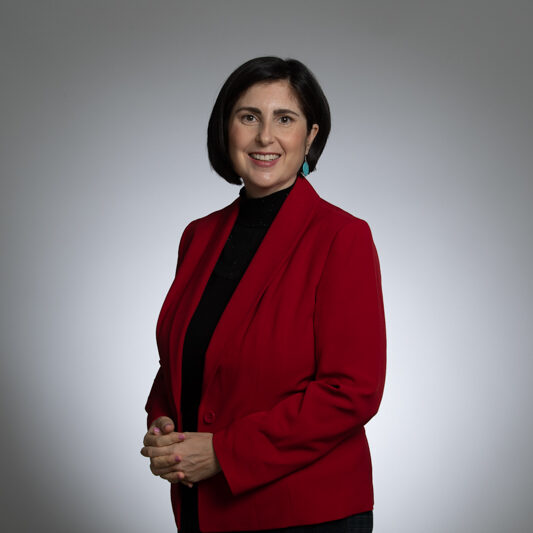
INN members, please meet the candidates seeking to represent you in two open seats on INN’s Board of Directors.
Each member director represents all members and serves a three-year term. We encourage voters to consider how a candidate has been involved with INN, the diversity of publication types, regions and INN’s values and what they envision for their role.
The top two vote-getters will be elected.
Voting is restricted to the top leader at your member organization. This person should have received an email requesting their vote (Subject: Select your member representatives on the INN board!) from sue@inn.org on Oct. 18. If you are not sure whether you are the correct person to vote for your organization, please reach out to membership@inn.org.
The deadline to vote is 12 p.m. ET on Nov. 1. If we receive duplicate ballots per organization, we will count that of the head of the organization.
You can vote from this link: INN BALLOT: Board of Directors
Keep reading to learn more about the candidates by reading their platforms and watching their candidate videos.

Watch Valeria Fernandez’s candidate video.
Bio
As a former professor at Arizona State University’s Walter Cronkite School of Journalism and Mass Communication, Valeria helped develop the next generation of Latinx and immigrant journalists. Now, as managing editor for palabra., a publication created by the National Association of Hispanic Journalists, she’s taking that work to the next level. She sees these journalists as vital for democracy and she aims to lift up their talent and wisdom.
Please list what INN trainings, programs and services your organization has participated in over the last year.
INN Days.
What aspect of INN is most valuable and how would you support or advance it further if elected?
INN offers connections to other colleagues in the field and publications that are extremely valuable. It’s important to work together to share from our gains and pains. If elected I would love to see how we can foster more collaborations at the editorial levels, and also opportunities to mentor editors and reporters at smaller publications serving BIPOC and immigrant audiences.
What might you work to change about INN if elected?
I think getting more diverse people to sit at the table is important. I would like to see more participation from Spanish-speaking publications and a push to create bilingual materials. I don’t think as much about change but more about growth and evolution.
Directors generally help in three broad types of direction: 1) Problem-framing and analysis. 2) Strategy. 3) Plans, tactics and execution. What’s your strongest suit among the three? (And all of them are “right” answers.)
I think problem-framing and analysis could be some of my strongest areas.
What specific skills would you like to contribute to the INN board? For example: fundraising, network-building, financial analysis, knowledge in journalism standards and ethics, nonprofit business expertise, making news media more inclusive, academic research.
I don’t know that passion is a skill, but I have a great commitment to grow the field of journalism and support what I call the “underdog.” I want to support the reporters and publications that never get the grants, or the fellowships. I like to be a bridge or connector to opportunities for others, and I’m quite good at matchmaking when it comes to that. I’ve been a reporter for almost two decades, and while now I’m in a management position, contributing to the creation of stories that are grounded in community, that restore trust in journalism and serve the audience (not as a consumer) by uplifting the work of others feels like a way to amplify what I’ve done my whole career.
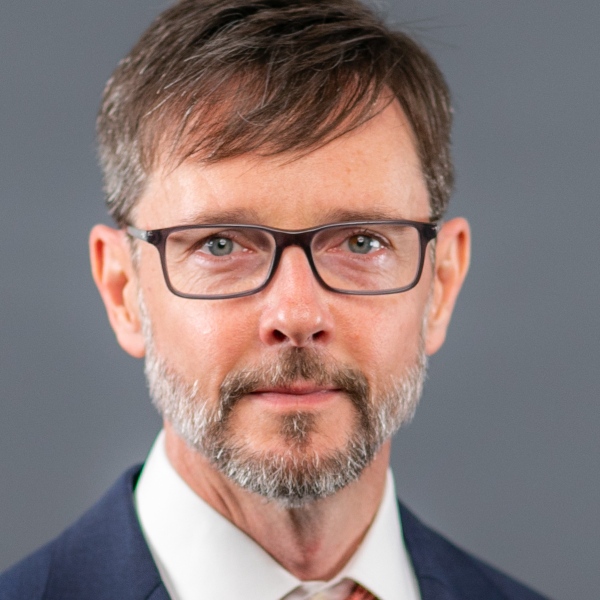
Watch Gary Green’s candidate video.
Bio
Gary Green is executive director for the Center for Sustainable Journalism, publisher of Youth Today,
the Juvenile Justice Information Exchange, Fresh Take Georgia and Bokeh Focus. He is also a senior
lecturer of communication at Kennesaw State University’s School of Communication and Media.
Green joined the Center in 2020 from the University of Florida where he served as digital director of the
Innovation News Center and deputy news editor for WUFT News, the NPR and PBS affiliates for north-
central Florida.
Prior to UF, he worked as a photojournalist and multimedia producer for newspapers and wire services
in Ohio and Florida including the Akron Beacon Journal, Orlando Sentinel and Knight Ridder/McClatchy-
Tribune News Service.
For six years, he served on the board of the Florida First Amendment Foundation, including as Vice
Chair. He currently serves on the advisory board for the Florida Center for Government Accountability.
Green received a master’s degree in Mass Communication from the University of Florida in Gainesville
and his bachelor’s degree from the School of Visual Communications at Ohio University in Athens, Ohio. Read more about Green.
Please list what INN trainings, programs and services your organization has participated in over the last year.
What aspect of INN is most valuable and how would you support or advance it further if elected?
As executive director for the Center for Sustainable Journalism, I know intimately how small, niche newsrooms rely on the INN for support, community, capacity building and more. The CSJ was one of the original members of INN and has turned to its leadership team and rapidly growing network of member newsrooms and colleagues for guidance repeatedly over the past decade. The Center now publishes four distinct news verticals, each with unique audiences, revenue models and content. Simply put, the CSJ would not be where it is today without the INN. And this is why I want to run for a seat on the INN board of directors. I want to give back and help this organization provide the services that start-up newsrooms need to prosper. I want to be a part of the solution, where a broad, diverse ecosystem of newsrooms inform the electorate, hold officials accountable and disseminate fact-based, objective and trusted news. Most importantly, I want to ensure that the dedicated journalists who believe in this work have financially stable newsrooms to employ them.
What might you work to change about INN if elected?
INN’s 400-plus members and its projected growth over the next five years are its strength. For members to realize the full value of the network, we need efficiencies for content sharing, collaboration and capacity building across the system. Much of this is already happening. As more and more newsrooms join, it is imperative that we build the network strategically and methodically, as INN will have more newsrooms and more journalists working in the nonprofit news sector than some of the industry’s largest media companies.
Secondly, I have been part of ongoing discussions with subgroups of INN concerned about inequities of grants from key foundations that are perceived as disproportionally going to large, well-known and well-funded newsrooms, leaving little to no funding for smaller operations. As philanthropic support for the nonprofit news ecosystem becomes more critical, and more newsrooms join the network, this discussion is likely to elevate and potentially fracture the “haves” and “have nots.”
Concurrently, I sat in on numerous sessions at ONA with new founders of nonprofit startups who are “bootstrapping” from their own savings accounts, not paying themselves or their team, while also serving a great need for their respective communities. While inspiring, this is not sustainable. INN is positioned well to help these startups succeed, build capacity and learn how to run a nonprofit newsroom beyond the journalism and reporting. I don’t want to see several hundred startup newsrooms close in a year or two because the funding and business models are not working and/or the founders, who generally are journalists, needed more support to learn the other side of the business.
INN is already addressing these issues on many levels. As it grows, the need will also grow. Training, development and support via regional hubs/managers is one potential option.
Directors generally help in three broad types of direction: 1) Problem-framing and analysis. 2) Strategy. 3) Plans, tactics and execution. What’s your strongest suit among the three? (And all of them are “right” answers.)
I think I could help in all three areas, but potentially might be strongest with strategy.
What specific skills would you like to contribute to the INN board? For example: fundraising, network-building, financial analysis, knowledge in journalism standards and ethics, nonprofit business expertise, making news media more inclusive, academic research.
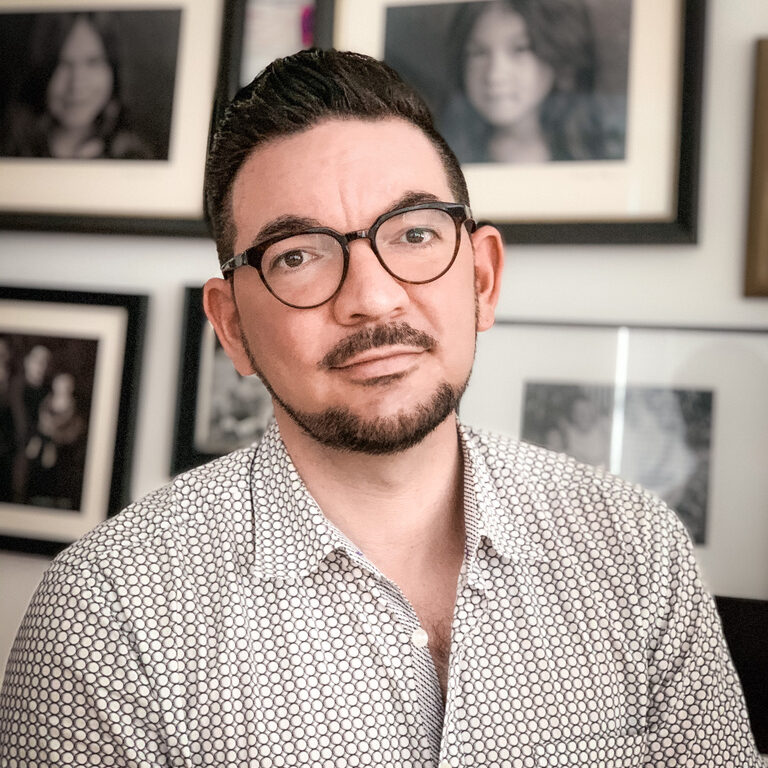
Watch Lucas Grindley’s candidate video.
Bio
Lucas Grindley is an advocate for nonprofit newsrooms and for making the media representative of the people we serve. For the last four years, Lucas Grindley has served as executive director of Next City, an INN-member newsroom that is helping readers who want to “spread solutions from one city to the next city,” ultimately making the places we live more equitable and just. He is the former president of Pride Media, where he oversaw editorial, sales, marketing, and finance for a cadre of LGBTQ magazines and returned the $15 million company to profitability. Lucas took on roles as an executive following an award-winning record as a journalist. While at The Advocate, where he was editor in chief. Lucas was twice named as the “LGBTQ Journalist of the Year” with NLGJA’s Sarah Pettit Memorial Award in 2016 and 2018. He’s also won two national Sigma Delta Chi Awards from the Society of Professional Journalists for his online breaking news reporting, covering a Category-4 hurricane and a criminal trial in an infamous child-abduction case. Lucas was online managing editor for National Journal magazine in Washington, D.C. during Barack Obama’s successful run for office and first term. His career spans 20 years, starting in local news at his hometown newspaper. Today’s he’s working to strengthen the local news ecosystem by enabling Next City to partner with local newsrooms and produce solutions journalism together that highlights ways of freeing cities from unjust and inequitable systems in economic development, affordable housing, and more.
Please list what INN trainings, programs and services your organization has participated in over the last year.
I am an alum of INN’s Emerging Leaders program and was selected for the training as part of the class of 2019.
Next City is among the longest-running contributors to the INN Index, having taken part in NewsMatch for many years. For the last two consecutive years, Next City has hosted an intern from the INN/Columbia Journalism Internship Program. And we’re a frequent brainstorming partner with the Collaborations team at INN. Like many member-newsrooms, we rely on INN as a source of funding, inspiration, connection, expertise, and advice.
I’m also supporting another INN member, the Neal Peirce Foundation, as the volunteer chair of its Advisory Council Journalism Grant Review Committee. We’re awarding dollars to journalists who want to travel outside their coverage area to report on solutions and bring lessons back home to readers, viewers, or listeners.
What aspect of INN is most valuable and how would you support or advance it further if elected?
I humbly ask for your support as an INN board member, where I would advocate for and work hard to create new access to national funding that the INN Index shows is largely unreachable for local newsrooms. We can do this together by building on the collaborations between newsrooms already begun by INN and that have so much potential to grow. If successful, INN can be a leading vehicle for fundraising collectively and working collaboratively. No program better encapsulates INN’s potential to connect local newsrooms with national funders than NewsMatch, which can be “just the beginning.” Expanding partner funds is on the roadmap for INN, and I would prioritize this work as a board member.
What might you work to change about INN if elected?
During my own experience, board members are most effective when they add their efforts to changes driven by or desired by the staff. I want to serve as reinforcements for the staff at INN who are pushing for new collaboration across newsrooms — and new funding to support those collaborations. I’m grateful for the staff who identify vendors that strengthen the sustainability of the news ecosystem by broadening our access to new tools. Most important to me personally, though, is that I use service as a board member to support the work of INN staffers who are developing and expanding its “diversity, equity and inclusion resources.”
As a gay man, I’ve experienced what it’s like to be excluded by our country and by the fourth estate assigned with keeping our democracy accountable. A more representative media is one better able to bring about a democracy that truly represents our nation.
Meanwhile, underrepresentation is characteristic of every kind of news media. A study published in JAMA Internal Medicine found that, of all editors for top-tier scientific and medical journals, 75% were white. A Radio Television Digital News Association survey in 2019 found that 86% of radio employees and 74% of local TV news employees were white. While there are anecdotal firsts worth celebrating — with eight of the 20 largest metropolitan newspapers in 2021 led by a person of color — the overall change is glacial. It was 1978 when the American Society of News Editors issued a challenge to our industry to achieve racial representation of the U.S. population by the year 2000. As of its latest survey 18 years later, however, American newsrooms were 77% white in 2018. The association has a new name and a new goal: 2025.
Meanwhile, the INN Index shows nonprofit newsrooms are leaders in inclusion. At Next City, 62% of stories published during the first six months of 2022 were authored by writers of color. More than half of our full-time staff are people of color. Of course, Next City isn’t perfect. But like many of you, we recognize platforms are powerful, and we want to transform access to journalism’s power.
Please support me with your vote, and I’ll work as hard as I can to make a difference.
Directors generally help in three broad types of direction: 1) Problem-framing and analysis. 2) Strategy. 3) Plans, tactics and execution. What’s your strongest suit among the three? (And all of them are “right” answers.)
I couldn’t have gotten by without being analytical or strategic. But I’m running a news organization because I decided what we need more of are — plans, tactics and execution! We have plenty that needs getting done, don’t we? Phew.
This is a question about what we’d be like as a director on the board, but I want to talk about members. Life as a nonprofit newsroom leader can sometimes be a lonely endeavor, during which we feel alone in experiencing the harsh ups and downs that come with preserving an organization’s sustainability. Access to funding goes a long way toward helping us all sleep better at night, but INN membership is also a source of collective wisdom. If elected, let’s talk more about the nitty-gritty of what’s working. We should find new opportunities to connect newsroom leaders who are juggling so much that needs getting done. We’re challenged with soliciting major gifts, developing sponsors, running financial operations, or effectively working with our own boards. Let’s rely on each other. Running a nonprofit is necessarily about “tactics and execution.” The logistics of running a business, however, ought not become a barrier to growing our journalism.
What specific skills would you like to contribute to the INN board? For example: fundraising, network-building, financial analysis, knowledge in journalism standards and ethics, nonprofit business expertise, making news media more inclusive, academic research.
When selecting board members, it can be helpful if they’ve served on boards previously. I spent three years on the board of a nonprofit foster-adoption agency Extraordinary Families, had a seat on the board of a for-profit company Pride Media, and worked intimately with our own board at Next City. I’ve also completed a “board prep” training program from Young Involved Philadelphia that is “designed to prepare young professionals for non-profit board service.” I was grateful, to be called “young,” and to have access to expert instruction.
But it’s because of my unique career path that I feel equipped to advocate for you and the many kinds of newsrooms that make up the INN community. A comprehensive understanding of media hopefully means I’m able to sort through buzz and identify evidence-based practices that make newsrooms more sustainable. Then INN can focus its significant resources in the areas most likely to make a tangible difference to our news ecosystem.
To name a few, I’ve worked in business models that depend on broadcast/video ads while at SNN Channel 6, high-priced magazine subscriptions serving a niche while at National Journal, plus print and online advertising while attracting eyeballs at The Advocate. I’ve even worked for a startup called BostonNOW that distributed free printed newspapers on the subway. In Sarasota at the local Herald-Tribune newspaper, I implemented an online classifieds system, helped launch a search engine and a user-generated print weekly. I’m not saying it all worked! It didn’t. But I’ve learned from all of these settings and can better serve you as INN members because of my range of experiences. Arguably the experience most reflective of my values is now as the head of a nonprofit organization, and that’s why I want to serve as a board member of the Institute for Nonprofit News.
If you vote for me (and I hope you will), I’ll call upon these differing experiences to do the best job I can on your behalf.
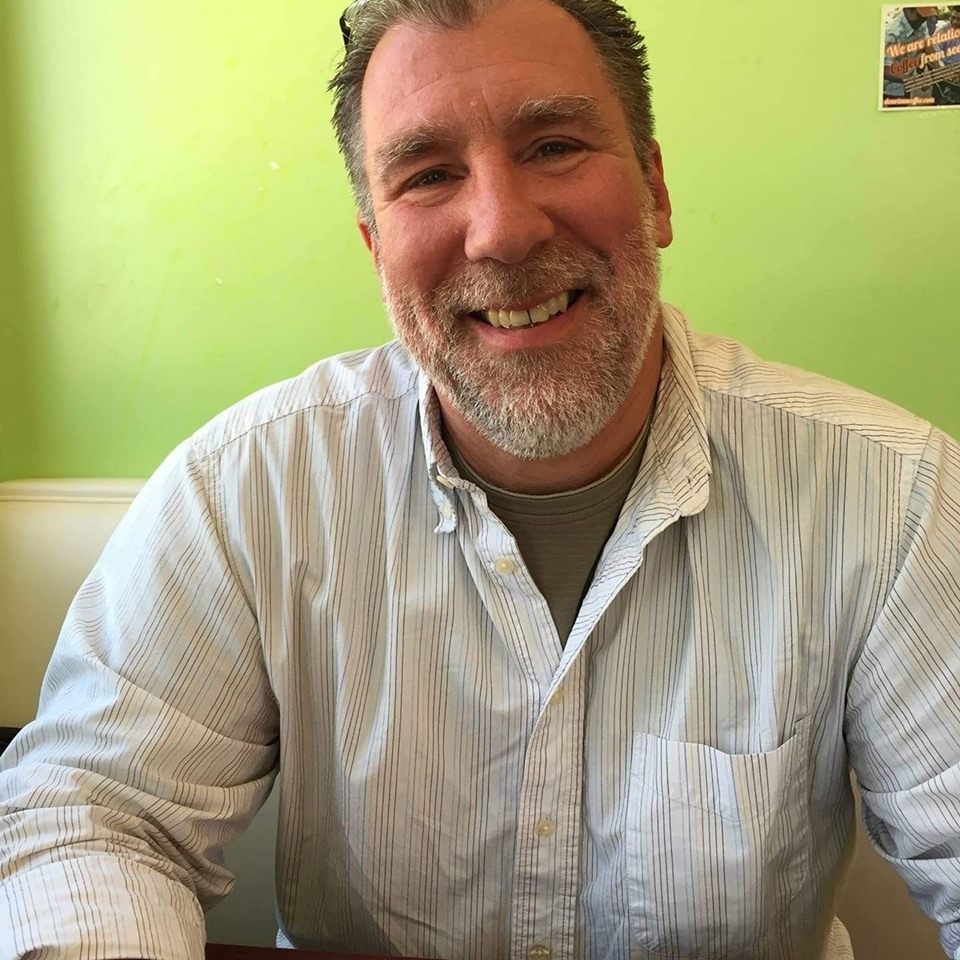
Watch Trip Jennings’ candidate video.
Bio
Trip Jennings is a former newspaper reporter and editor who has worked in Georgia, California, Florida, Connecticut and New Mexico, covering everything from government corruption and the changing face of healthcare in America before co-founding New Mexico In Depth in 2012.
New Mexico In Depth is an investigative, data-driven nonprofit media outlet intent on bettering the lives of New Mexicans through reporting that holds power to account and that can be a catalyst for change.
Its reporting has changed state laws and exposed racist policing and health care practices through stories uplifted by and from the perspective of people in underserved communities.
Part of our focus is on how money influences the making and implementation of laws and regulations and how those rules affect the lived realities of New Mexicans—especially the state’s low-income communities—and sometimes perpetuate inequities in education and criminal justice.
Trip picked up his orientation to power growing up in Georgia in the 60s and 70s, a time and place that taught him the power of the question “why are things the way they are.” It also made him mindful that stories about individuals, while fun, only go so deep; looking at systems and institutions reveal much more about the world in which we live than stories about individual wrongdoers.
In addition to work, Trip loves reading, listening to a wide array of musical genres and, perhaps most importantly, watching his kids grow into engaged, compassionate adults in the world.
Please list what INN trainings, programs and services your organization has participated in over the last year.
I participated in INN training at the Online News Association conference in Los Angeles in September. In the last year, our organization also has participated in two collaborations with multiple fellow INN members — one on water in the West, which rolled put in two stages
(https://inn.org/inn-collaborations/tapped-out-power-and-water/ and https://inn.org/inn-collaborations/tapped-out/) and the other on the state of the economy in Indian Country
(https://inn.org/inn-collaborations/at-the-crossroads/). In addition, New Mexico In Depth participated in the 2021 NewsMatch campaign.
What aspect of INN is most valuable and how would you support or advance it further if elected?
I’ve helmed a small nonprofit newsroom for 10 years now, so I know what it’s like to juggle multiple responsibilities: editing, reporting, back-end administrative work, fundraising, keeping up with industry trends — you name it, I’ve done it. Some days, like many of you I suspect, I’ve been so busy I’ve felt like I couldn’t catch a breath. This work can feel isolating and overwhelming at times, especially given the challenges confronting the news industry.
INN’s forums and other opportunities to meet up on ZOOM and in-person to talk, even commiserate, has helped me remember that New Mexico In Depth is not alone.
We are all in this together. And I’d like to give back to this community that has given me so much.
Continuing to build community in the expanding nonprofit sector is vitally important, particularly as legacy outlets shrink in our respective states and nonprofit news outlets are being forced to confront whether or not to take on even more work and responsibilities. Do we fill the news coverage gap? And how do we do that without sacrificing our mission if the answer is yes.
I will advocate for small newsrooms, too, especially those in states that national foundations sometimes overlook in their quest to rescue journalism from the abyss of economic catastrophe.
The same goes for advocating for underserved communities. New Mexico, where I live, has a population that is nearly two-thirds non-white. In many ways, it’s ahead of the demographic trends that are reshaping and will continue to reshape the United States in coming decades. As a 35-year veteran of news, more than half of it spent at daily newspapers around the country, I know how often certain populations were and continue to be overlooked. As an industry we need to do better.
I want to work with INN to continue to strengthen the growing trend toward collaborations among INN members. Since 2020, we’ve participated in four collaborations and each one was a terrific experience, for our newsroom and for our audience, who learned so much about rural education during COVID, water in the West and the economy of Indian Country.
What might you work to change about INN if elected?
Over the next three years, I would want to contribute to the progress INN has made in in lobbying major national foundations that traditionally have not funded journalism that journalism is a public good to invest in — like, say, the arts — and that without it, the risks to a functioning, healthy democracy become potentially fatal.
Another area of great need among INN’s growing population of members is figuring out how to reach long-term sustainability. INN has done a good job over the past half decade in beefing up its tools — trainings, wealth management resources and fundraising campaigns like NewsMatch. I would like to contribute to that progress over the next three years as our industry undergoes a fundamental transformation and nonprofit news outlets are asked increasingly to step in to fill the gap in news coverage.
Directors generally help in three broad types of direction: 1) Problem-framing and analysis. 2) Strategy. 3) Plans, tactics and execution. What’s your strongest suit among the three? (And all of them are “right” answers.)
Problem-framing and analysis
What specific skills would you like to contribute to the INN board? For example: fundraising, network-building, financial analysis, knowledge in journalism standards and ethics, nonprofit business expertise, making news media more inclusive, academic research.
I’m a 30-year veteran of journalism, the first half spent at daily newspapers around the country, the second half working in the digital space. My particular focus over the last 20 years has been on statehouse and state government reporting. I bring a familiarity to the myriad issues facing statehouses and the journalists who cover them or who hope to strengthen their reporting chops in those areas. (Among the stories I’ve covered over the years involve several episodes of public corruption, including a governor who eventually went to federal prison and another governor who had to withdraw his nomination as a presidential cabinet secretary due to a federal investigation). Statehouse reporting over the past 20 years has been diminished by layoffs and shrinking newsrooms, and more and more, nonprofit news organizations are being asked to fill that gap in their states. I could be a valuable resource.
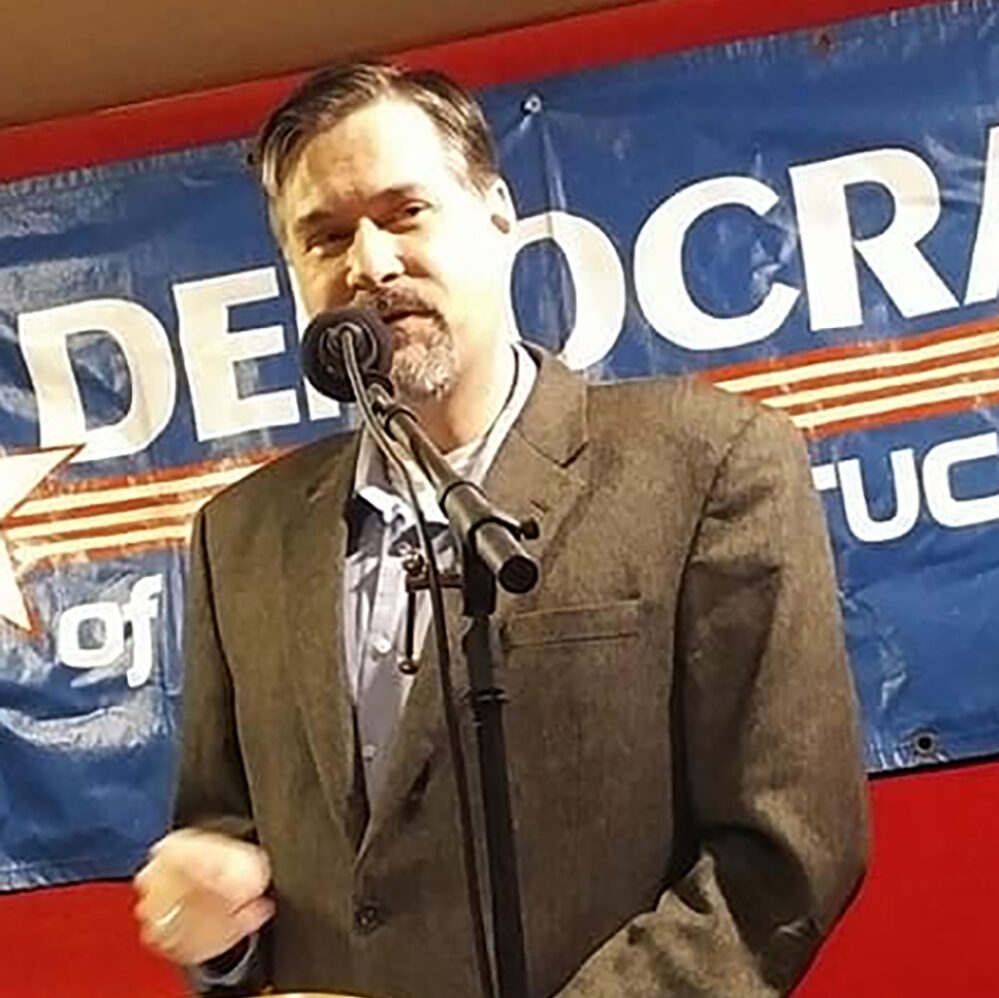
Watch Dylan Smith’s candidate video.
Bio
Dylan Smith is the Editor and Publisher of the Tucson Sentinel, a pioneering nonprofit local independent online news organization, which he founded in 2009.
He was the founding chairman of Local Independent Online News (LION) Publishers and now serves as the president of the Arizona Press Club, and a member of the national Professional Standards and Ethics Committee of the Society of Professional Journalists.
The Sentinel was among the earliest cohort of INN members, joining in 2011, and Dylan’s been an active member of several INN efforts over the years, including serving as the org’s representative on the Rebuild Local News Coalition — a group working to put millions of dollars into local news outlets. He’s also the moderator for the Locally Focused peer channel of INN’s Slack community.
He’s won numerous state and national awards for breaking news and investigative journalism, including the Sledgehammer Award from the Arizona Press Club.
Dylan is a longtime member of IRE, SPJ and American Copy Editors Society, as well as the Society of Environmental Journalists, National Press Photographers Association, and is an ally member of NABJ, NAHJ and NAJA.
Prior to founding the Sentinel, he was the Online Editor for the Tucson Citizen, until the newspaper was shut down.
An experienced designer and programmer, he served as an Invited Expert on the World Wide Web Consortium’s HTML Working Group, helping to write the latest specification for the language that runs the Internet.
Please list what INN trainings, programs and services your organization has participated in over the last year.
In addition to NewsMatch (of course) and related training/chat sessions, and taking part in regular Rebuild Local News discussions, I spoke at and learned a lot from colleagues at the in-person INN Day event at ONA. I’ve been the moderator of the Locally Focused peer community group in INN’s Slack.
The Sentinel has been sharing opportunities on the INN jobs board, taken part in several Google News Initiative programs in conjunction with INN, and I, along with my co-publisher Maria Coxon-Smith and our staff, have been part of frequent informal peer-to-peer discussions with numerous other INN members — something I find to be the most valuable and fulfilling part of our organization.
What aspect of INN is most valuable and how would you support or advance it further if elected?
The most valuable part of any professional organization is the ability of members to share real-world experiences — their successes and shortfalls, and the nuts-and-bolts of how they went about things. Membership in INN means each of us helping make other publishers better, as we all figure out how to rebuild the news business in a way that has equity, access and meaningful impact on our communities.
Our members are transforming the news business in fundamental ways, creating different models that better serve all of those we cover, rather than working to simply put things back the way they were. As nonprofits, our work invests in the success of the communities we listen to and help inform, rather than seeking to profit from them.
As a member of INN’s Board, I will work to ensure that programming and services are always put into context for the wide variety of member organizations that we serve — not every one of us can, say, copy a Texas Tribune or ProPublica initiative, but there are real-world opportunities to be found within what each of us are accomplishing.
I’ll also keep pushing for INN to be the collective voice of the nonprofit news sector in dealing with state and federal governments. We’re the most vital and growing part of the news business, and we need to be heard — whether it’s on issues such as the payroll tax credit of the Local Journalism Sustainability Act that could fund half of your newsroom salaries for the next several years (and allow you to hire even more reporters), or FOIA and transparency concerns, and Internet regulations.
I rewrote a section of the LJSA legislation to ensure that it’s more equitable, and our Rebuild Local News group successfully lobbied to have that provision added to the markup of the bill.
INN’s efforts, along with our partners, to keep that measure on the front-burner, and actually get it through Congress, is some of the most important work happening in the news business right now. It would mean tens of millions of dollars would be available over five years for our members to invest in growing our newsrooms.
Directors generally help in three broad types of direction: 1) Problem-framing and analysis. 2) Strategy. 3) Plans, tactics and execution. What’s your strongest suit among the three? (And all of them are “right” answers.)
I’ve helped take LION Publishers from a small all-volunteer group with a couple hundred bucks in the bank to a national organization with a budget in the millions, at the same time as growing my own news organization, TucsonSentinel.com, so I’ve got some skills in each of these areas.
As a director, I’ll do what the Board chair and ED (and our members) need most — I’m an eager hand and always ready to work where needed. Mostly, I’m best at getting (stuff) done — tackling a problem and making things work.
What specific skills would you like to contribute to the INN board? For example: fundraising, network-building, financial analysis, knowledge in journalism standards and ethics, nonprofit business expertise, making news media more inclusive, academic research.
Especially of late, I’ve had a keen interest in how our well-grounded ethics (I wear my grandfather’s Sigma Delta Chi ring every day to remind me of the importance of SPJ’s Code in our work) will fit into the developing model of the news business. It’s only going to become more common for the old-school “wall” between the newsroom and business side to crumble away. Yet we don’t have many widely agreed principles that govern our industry in this new world. SPJ concerns itself with reporting, not revenue.
INN has, thankfully, set some general transparency standards. But there are a lot of open questions that need to be discussed, so we can better agree what is correct and what’s out of bounds. That’s why I’ve joined the SPJ Ethics Committee, as we tackle a review of that code, and why I’m always listening to local publishers as they discuss the challenges they face, internally and in public perceptions.
I also remain very committed to not just rebuilding, but re-shaping the news business in a way that’s inclusive and equitable — we can’t let our work in our own organizations, as well as in INN and LION and other groups, lay the foundation for homogeneous corporate takeovers that just lead to the same old problems.
There’s a danger that the collapse of legacy fossil media will create the opportunity for a repeat of the problems that caused the news to be so disconnected and unrepresentative in the first place. Fostering independence in our press will help keep power and responsibility distributed in a way that will better serve more people.

Watch Robin Sparkman’s candidate video.
Bio
Robin Sparkman became President of ProPublica in September 2021. She has responsibility for all of ProPublica’s non-journalism operations, including fundraising, communications, legal, finance and budgeting, and human resources. Prior to ProPublica, Sparkman was the founding CEO of nonprofit media organization StoryCorps. Previously, she spent more than two decades as a reporter and editor. She served as editor-in-chief of the American Lawyer from 2010-2014, and earlier as executive editor, as well as deputy editorial director of parent company American Lawyer Media. Previous work included stints at MSNBC.com and Newsweek. She serves on the executive committee of the board of Union Settlement and on the Wellesley College Business Leadership Council.
Please list what INN trainings, programs and services your organization has participated in over the last year.
My colleagues have participated in online programs over the last few years.
What aspect of INN is most valuable and how would you support or advance it further if elected?
INN is the most important entity in the nonprofit news space. We need to use our authority to advocate for change and lift up all INN members–big and small.
What might you work to change about INN if elected?
Better recognition within and outside the field.
Directors generally help in three broad types of direction: 1) Problem-framing and analysis. 2) Strategy. 3) Plans, tactics and execution. What’s your strongest suit among the three? (And all of them are “right” answers.)
Strategy. I’ve worked on strategic plans at three different organizations, and I know, when done right, how critical they can be.
What specific skills would you like to contribute to the INN board? For example: fundraising, network-building, financial analysis, knowledge in journalism standards and ethics, nonprofit business expertise, making news media more inclusive, academic research.
I spent 20 years as a journalist and now 10 as a nonprofit CEO. I understand editorial and business and bring extensive nonprofit management and fundraising experience.

Watch Ted Streuli’s candidate video.
Bio
I worked in traditional newspapers for about 30 years as a reporter, editor, and publisher in California, Texas, and Oklahoma, and have been the executive director at Oklahoma Watch since June 1, 2020.
I have served on numerous nonprofit boards including Leadership Oklahoma, Goodwill of Central Oklahoma, Rotary Club 29, Camp Fire Heart of Oklahoma, Peaceful Family Oklahoma, Possibilities, Inc., and others.
I am a member of the Oklahoma Journalism Hall of Fame, former president of the Oklahoma Press Association, and immediate past president of Freedom of Information Oklahoma. I was the recipient of the Will Rogers Award for Humanitarianism from the National Society of Newspaper Columnists, the Pilot Award from the Oklahoma Business Ethics Consortium, the Voice Award from the US Substance Abuse and Mental Health Administration, and numerous other writing and editing awards.
Please list what INN trainings, programs and services your organization has participated in over the last year.
We have participated in the INN News Awards, INN Survey, NewsMatch prep, the ProPublica local reporting webinar, INN Days, and Major Gifts Coaching.
What aspect of INN is most valuable and how would you support or advance it further if elected?
The opportunity to network and learn from peers is the most valuable part of INN for our organization. As a board member, I would seek ways to further those connections and build relationships among members.
What might you work to change about INN if elected?
I would work to ensure members are “met where they are” to borrow a phrase. The training and advice needed by a small startup is different than what’s helpful to a decade-old, mid-size organization or a well-funded, well-established large organization. Member organizations of all experience levels should be able to readily find resources that help them further their missions.
Directors generally help in three broad types of direction: 1) Problem-framing and analysis. 2) Strategy. 3) Plans, tactics and execution. What’s your strongest suit among the three? (And all of them are “right” answers.)
Of the three, strategy is my strongest skill.
What specific skills would you like to contribute to the INN board? For example: fundraising, network-building, financial analysis, knowledge in journalism standards and ethics, nonprofit business expertise, making news media more inclusive, academic research.
My greatest expertise is in journalism standards and ethics, as well as the skills that deliver solid journalism to the audience: storytelling, story framing, and newsroom management. I also offer strong skills in network-building and collaboration.
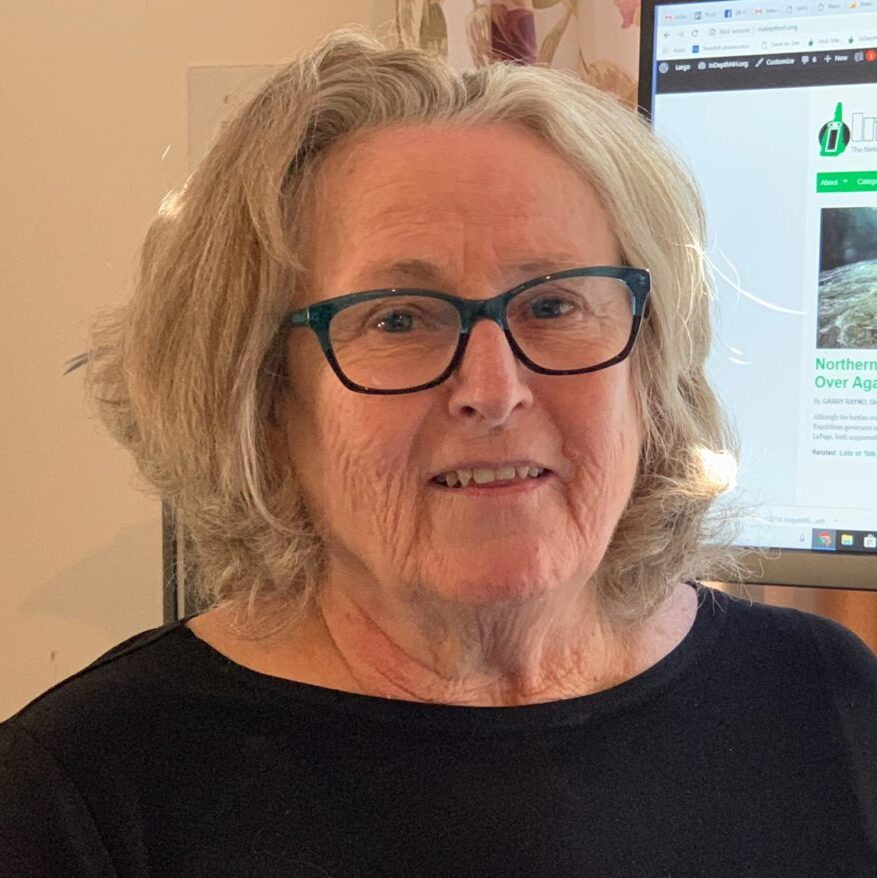
Watch Nancy West’s candidate video.
Bio
I have been a reporter/editor for more than three decades and watched the changes that are destroying so many newspapers. At the same time I have been working hard for seven years to find a sustainable path for news in the future as the founder of the NH Center for Public Interest Journalism. It has been a challenging and exciting journey that I look forward to continuing until we find a solution to rebuild news in New Hampshire and the nation.
Please list what INN trainings, programs and services your organization has participated in over the last year.
Whenever I have a question, there is usually someone at INN who can help. Over the years, I have taken advantage of most of the training seminars INN offers, especially early on when I focused on our business plan and social media. Since NewsMatch is our biggest fundraiser, I pay particular attention to those webinars.
What aspect of INN is most valuable and how would you support or advance it further if elected?
NewsMatch is the most valuable to our organization now. I would encourage more national attention to increase the amount raised and separate it from directed donors.
What might you work to change about INN if elected?
If elected, I would work to change INN so more funding goes directly to small news outlets and less to bureaucracy, and encourage more member involvement.
Directors generally help in three broad types of direction: 1) Problem-framing and analysis. 2) Strategy. 3) Plans, tactics and execution. What’s your strongest suit among the three? (And all of them are “right” answers.)
I have experience in all three areas.
What specific skills would you like to contribute to the INN board? For example: fundraising, network-building, financial analysis, knowledge in journalism standards and ethics, nonprofit business expertise, making news media more inclusive, academic research.
Knowledge in journalism standards and ethics.
Back to top